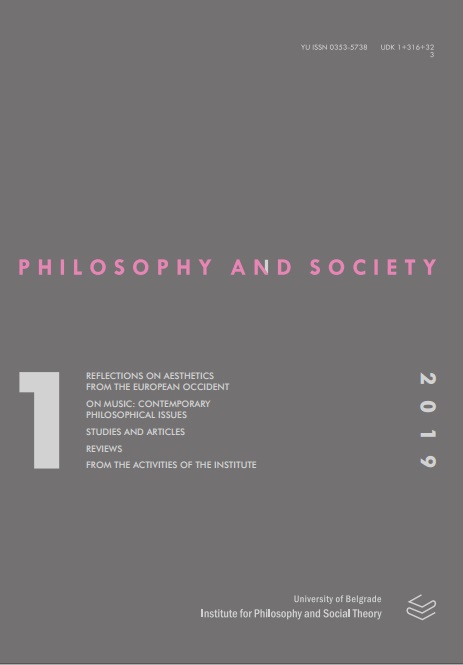The Ontology of Rock Music: Recordings, Performances and the Synthetic View
The Ontology of Rock Music: Recordings, Performances and the Synthetic View
Author(s): Hugo LuzioSubject(s): Music, Aesthetics, Ontology
Published by: Institut za filozofiju i društvenu teoriju
Keywords: Comparative Ontology; Rock Music; Recordings; Performances; Songs; The Synthetic View
Summary/Abstract: This paper discusses the state-of-the-art dispute over the ontological question of rock music: what is the work of art, or the central work-kind, of rock music, if any? And, is the work of rock music ontologically distinct from the work of classical music, which is the only musical tradition whose ontology is vastly studied? First, I distinguish between two levels of inquiry in musical ontology: the fundamental level and the higher-order level, in which comparative ontology – the project in which someone engages by considering that there is ontological variety among works of distinct musical traditions – falls. After addressing two general questions about rock music, I turn to Theodore Gracyk’s ontological account of rock music, according to which the primary focus of critical attention in rock music are recordings, or recorded tracks. This view has the consequence that ‘recordings’ is a fundamental concept of philosophy of music, necessary for us to understand rock music. Stephen Davies objected that Gracyk’s account fails to assign appropriate value to a valuable practice with which rock audiences are committed, live performance, and argued that the works of rock music are of the ontological kind for studio performance. Finally, Andrew Kania synthetized both views: rock recorded tracks are at the centre of rock as an art form, thus being the rock works. For, different reasons, none of these views is deemed satisfactory.
Journal: Filozofija i društvo
- Issue Year: 30/2019
- Issue No: 1
- Page Range: 73-82
- Page Count: 10
- Language: English

